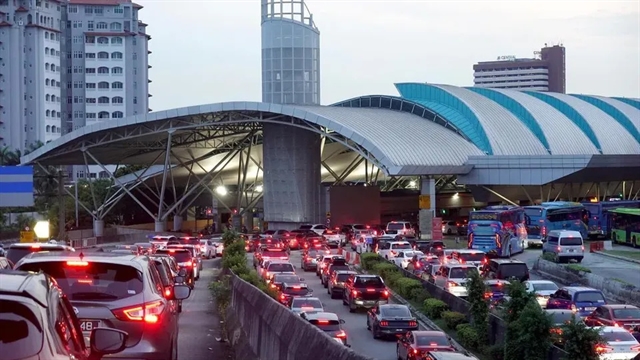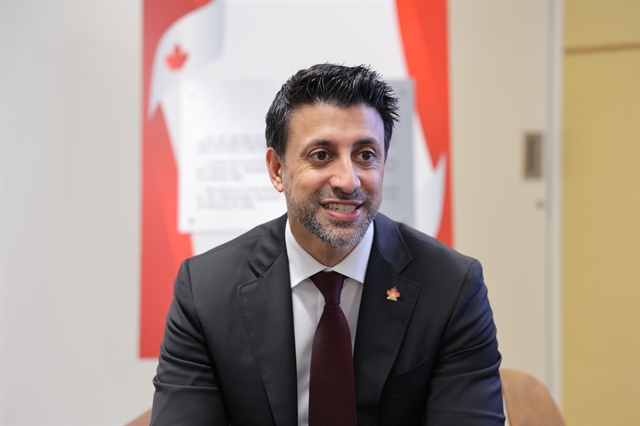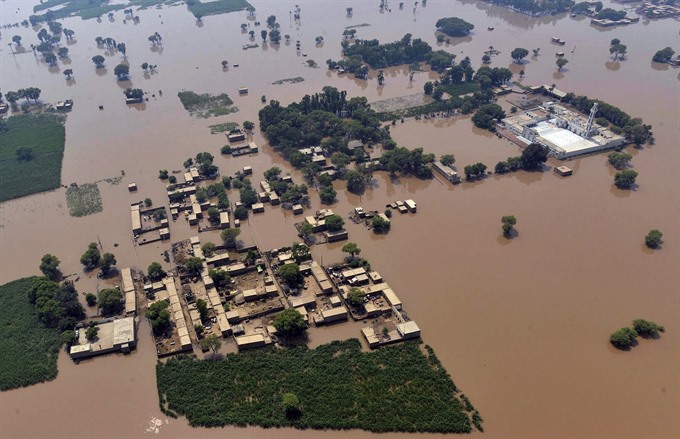 World
World

Dozens of nations threatened with catastrophe from unchecked climate change warned on Thursday they "face extinction" without immediate action to rein in mankind's emissions, as UN climate talks limped towards their conclusion.
 |
| A flooded village in Pakistan, Punjab province. In the northern areas of the country glaciers are melting, while the population is steadily increasing. Thus, flooding cause millions of climate refugees every year.— AFP/VNA Illustrative Photo |
KATOWICE — Dozens of nations threatened with catastrophe from unchecked climate change warned on Thursday they "face extinction" without immediate action to rein in mankind’s emissions, as UN climate talks limped towards their conclusion.
Representatives from nearly 200 nations are locked in negotiations in Poland over how to make good on the promises they made in the landmark 2015 Paris agreement aimed at limiting global temperature rises.
Talks have however hit a wall over a host of disputes ranging from adopting the newest environmental data to how the fight against climate change will be financed in future.
But with Earth already experiencing widespread droughts, flooding and mega-storms made worse as our planet heats up, many nations simply cannot wait for action.
"We are bearing the torch for those vulnerable to climate change," Hilda Heine, president of the Marshall Islands, told delegates at the COP24 summit.
"We represent a number of nations, like my own, that face extinction. Species of all kinds also face existential risk."
A group of 48 nations representing more than one billion people urged developed countries - responsible for the lion’s share of planet-warming greenhouse gas emissions - to pay up to help the worst affected.
"We are in Poland in the name of the children of tomorrow whose interests we must secure, compelled by science and duty," said Emmanuel De Guzman, from the Philippines Climate Change Commission.
"We find the ambivalence of countries in these negotiations unacceptable. We are discussing here not trivial text or punctuation marks but our very survival."
A major sticking point at talks scheduled to wrap up on Friday remains how nations use the findings of a landmark UN report released in October.
The Intergovernmental Panel on Climate Change (IPCC) highlighted the need for greenhouse gas emissions to be nearly halved by 2030 and for fossil fuel use to be slashed in order to achieve the Paris goal of limiting temperature rises to 1.5 degrees Celsius.
Four nations - the United States, Saudi Arabia, Russia and Kuwait - blocked a proposal for nations to "welcome" the IPCC report as a basis of future climate action.
’Talking and talking’
Delegates in the Polish mining city of Katowice must agree on a rulebook to implement the Paris accord and are encouraged to outline what they plan to do in practice ahead of a stock-taking in 2020.
But talks are dogged by competing interests, and even if the Paris pledges are realised Earth is on the path towards 3C warming - enough to tear at the fabric of society.
"We are not prepared to die," said Mohamed Nasheed, former Maldives president and a veteran of UN climate summits.
"Perhaps now it’s time to tell ourselves some hard truths. Carbon emissions keep rising, and rising, and rising. And all we seem to be doing is talking and talking and talking. We are not winning the battle." — AFP